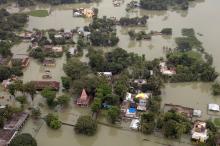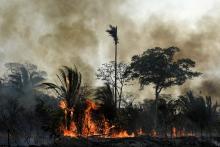Climate change is one of the most pressing challenges of the present and the future. Rising temperatures and sea levels, as well as extreme weather events are manifestations of climate change that also influence military capabilities. Increased attention for the climate change-security nexus is visible both at the national and the international level: nationally through the incorporation of climate change in security strategies and internationally through incorporation in important strategic documents such as the EU’s Strategic Compass and NATO’s Strategic Concept.












